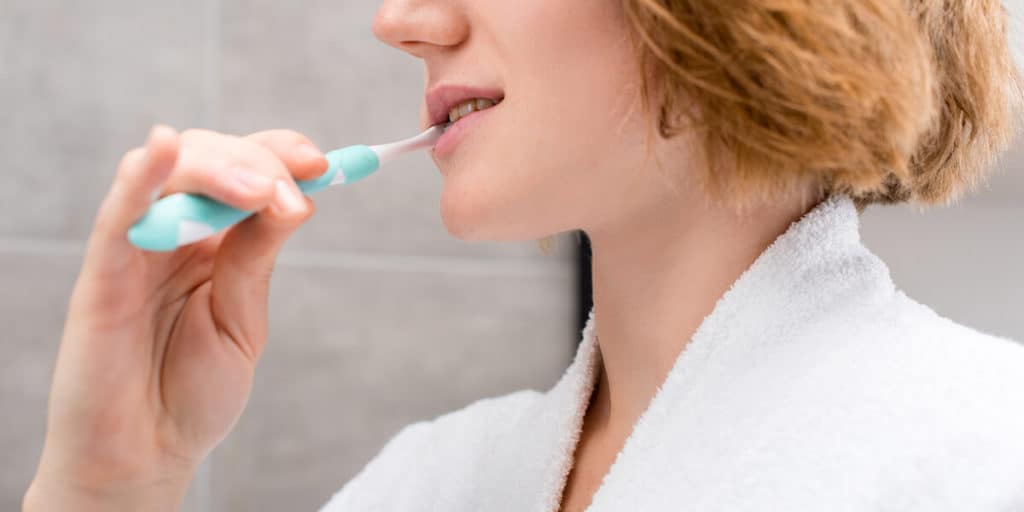Keeping up your oral hygiene is a significant part of maintaining your total health. Brushing your teeth controls plaque build up which otherwise becomes tartar which is unattractive, damages your gums, and can only be removed professionally. To avoid costly interventions, daily cleaning as prevention is key.
Paired with flossing, brushing your teeth can help prevent consequences that usually stem from neglect like tooth decay and gum disease. There are even studies that link gum disease to serious conditions like heart disease, pre-term birth, and endocarditis.
Toothbrushing habits you can use!
The American Dental Association (ADA) thankfully has some easy tips that we can follow to keep your smile healthy and in great shape for our entire life.
In all, there are 15 brushing habits that we can adopt today will make sure we have a great smile and also keep us from having costly dental operations.
1. Frequency.
Brush your teeth at least twice a day, at morning and night. If you prefer, you can also brush your teeth after lunch, however, do not brush your teeth more than three times a day to protect your protective enamel.
2. Duration.
Brush your teeth for two minutes each session. Many electric toothbrushes have automatic timers that are helpful if you have difficulty brushing for the appropriate length of time.
3. Divide and Conquer.
Brush every section of your teeth for 30 seconds each to make sure your whole mouth is squeaky clean.
4. Be gentle.
Don’t brush your teeth too hard. If you use an electric toothbrush, use a lower setting and make sure not to bear down too hard while brushing.
5. It’s all in the angle.
Hold your toothbrush at 45-degree angle while you brush your teeth.
6. Have the perfect stroke.
Brush in an up and down motion with short strokes for the best results.
7. Get everything.
Brush your inner and outer teeth. Brush the hard to reach places like inside your back molars and behind them.
8. Brush your tongue.
For good breath and to prevent the spread of plaque, this step is key. You can also use tongue cleaners that do a better job than a toothbrush.
9. Go easy on whitening or tartar control toothpaste.
Using whitening toothpaste too often can destroy your enamel, so keep this in mind when selecting your toothpaste.
10. Wait after consuming acidic foods and drink.
Do not brush your teeth for 30 minutes after eating acidic foods. A few examples of common acidic beverages are coffee, orange juice, and soda. Brushing your teeth too early after exposing your teeth to acids will wear down your enamel over time.
11. Let your toothbrush air dry.
Moisture can cause bacteria and mold to grow on your toothbrush. Therefore, don’t leave your toothbrush on the counter but take the time to set it in a proper toothbrush holder to dry completely.
12. Don’t let them touch.
Keep your toothbrush from touching other toothbrushes to stop bacteria from spreading between brushes.
13. Don’t cover your toothbrushes.
Especially when they are wet, those toothbrush cases can actually cause mold and bacteria growth.
14. Switch them out.
Change your toothbrush every 3-4 months or whenever your bristles become damaged or frayed. For electric toothbrushes, toss out your brush head according to the same rule. One good way to remember this timeframe is to change your toothbrush at the beginning of a new season.
15. Floss.
Great dental health involves a faithful daily combination of flossing and brushing. Make sure to floss at least once a day. Flossing helps remove the plaque that toothbrushes can’t reach, which helps your gums and also prevents the formation of tartar on your teeth.
If you are using regular floss, make sure cut off 18 inches of dental floss for the job. Pre-threaded disposable flossers are also very convenient and are easier to use which may help you keep this important routine regular.
Don’t forget to visit your dentist!
Brushing and flossing your teeth are both very important to make sure you avoid complicated issues with your oral health in the future. However, visiting your dentist regularly for cleanings and checkups is also important.
With the help of your dentist, you can detect problems early or prevent them from even occurring, sparing you future expensive interventions and surgeries.
Overall, the key to great teeth is being consistent. Sometimes it is easy to drop the ball because our teeth may look fine today. However, your teeth and gums can only stay healthy from a solid, regular regimen of cleaning and plaque removal.
If you have any more questions about proper home care for your teeth, contact us.
